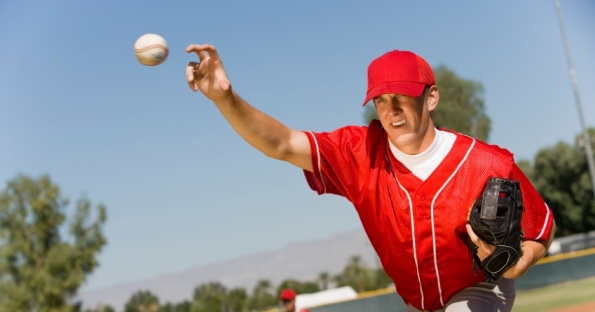Phoenix: 602.866.2231 | Queen Creek: 480.987.1870
Physical Therapy & Rot...
Treatment after Rotator Cuff Surgery The rotator cuff is made up of four muscles and their tendons. They allow you to move your arm away from your body and are responsible for keeping the shoulder joint stable. If...
Treatment after Rotator Cuff Surgery
The rotator cuff is made up of four muscles and their tendons. They allow you to move your arm away from your body and are responsible for keeping the shoulder joint stable. If injured, you may need surgery to restore use of the shoulder and decrease painful symptoms.
How can physical therapy help?
No Surgery
If you don’t need to undergo rotator cuff surgery, your physical therapist will work with you to restore your range of motion, muscle strength and coordination to help you return to your normal everyday activities.
Rotator Cuff Surgery
Physical therapy is an important part of the rotator cuff surgery process. Following surgery, the rotator cuff is vulnerable to re-injury so it’s important to work with a physical therapist to regain full use of the arm safely. Once healed, your physical therapist will design a treatment and exercise program specifically for you and teach you proper ways to move your shoulder for everyday tasks and activities. Treatment may include a combination for exercises to strengthen the rotator cuff and other muscles that support the shoulder joint.
Typically, your rehabilitation will be divided into 4 phases:
Phase I—gentle range-of-motion and isometric strengthening exercises, massage, cold compression, electrical stimulation to relieve pain
Phase II—restore mobility to the shoulder by exercising and strengthening the shoulder muscles, hands-on mobilization techniques to restore shoulder’s range of motion
Phase III—advance the difficulty of your exercise to help restore your strength to help you return to activity
Phase IV—this phase will help you return to sports, work and other activities through teaching you activity-specific exercises
[Options]Take care of your shoulder/Show your shoulder some love/Should injury prevention
Once your rotator cuff has healed, avoid any extra or unnecessary physical stress. Here are some tips for being good to your shoulder:
- Always carry heavy objects close to your body
- Practice good posture and body mechanics—stand straight with your shoulders back
- Avoid undue pressure on the affected shoulder by laying on the other side
- Avoid repeated overhead arm positions that may cause shoulder pain
- Avoid smoking—it may decrease the blood flow to your rotator cuff
If you are suffering from a rotator cuff tear injury or recently had rotator cuff surgery, please contact Above & Beyond. One of our expert physical therapists will provide specific exercises that will strengthen your rotator cuff and the muscles surrounding the shoulder, reduce pain and inflammation and help you to return to your daily activities.


 hover background
hover background